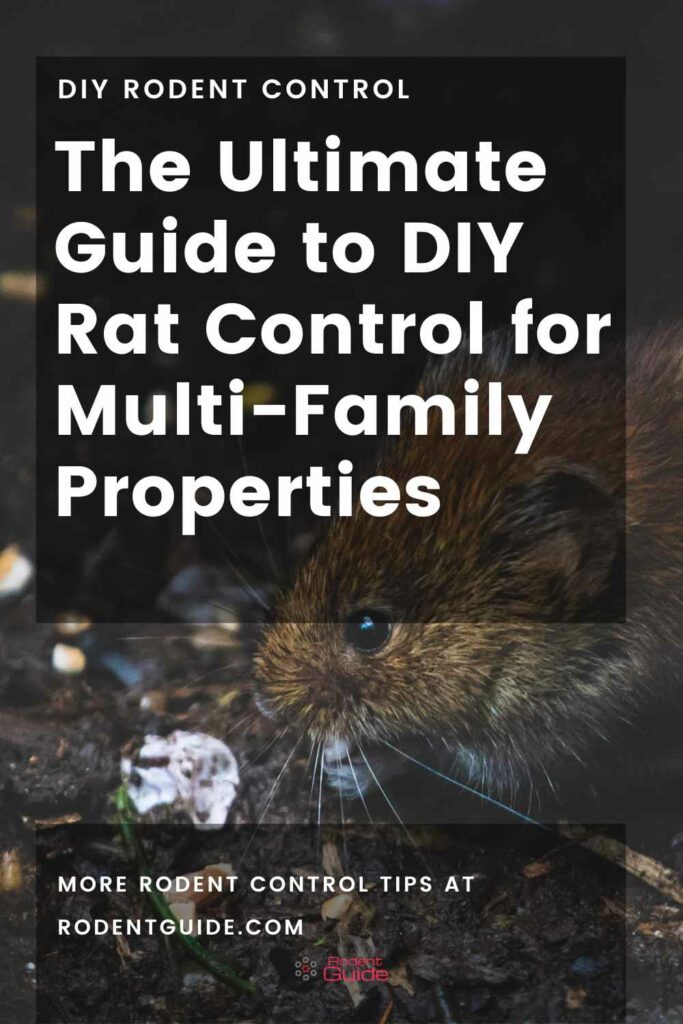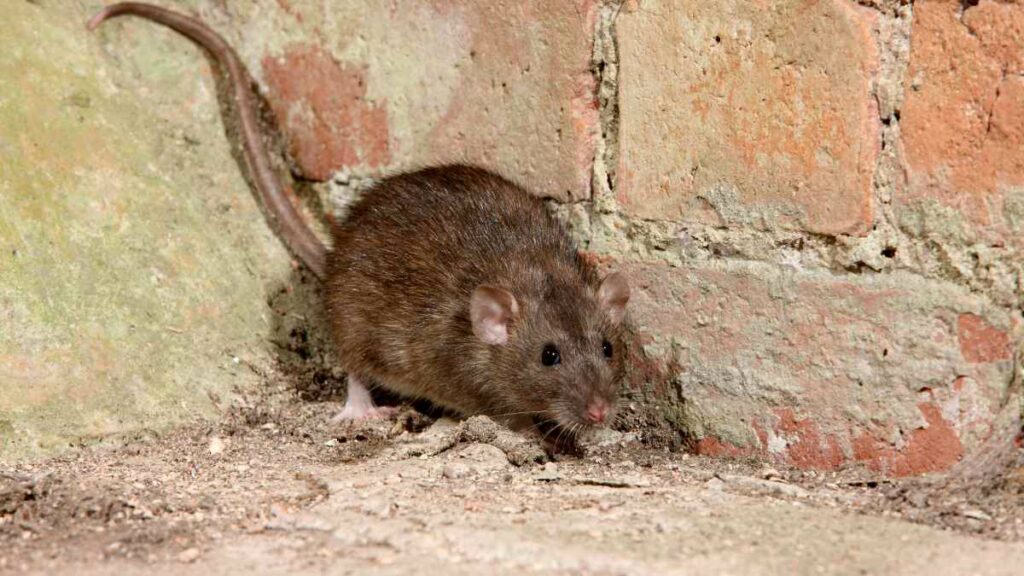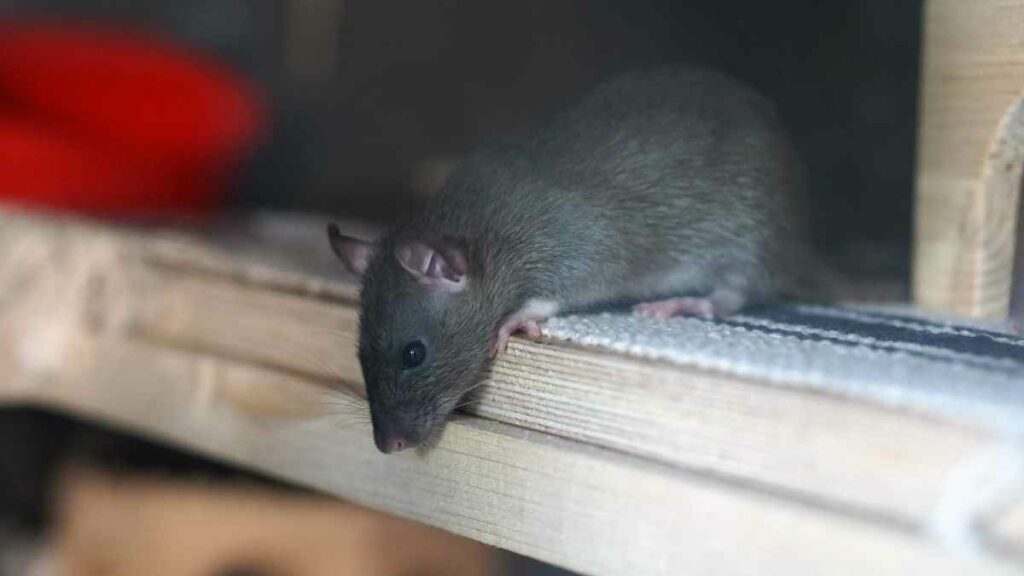Are you tired of dealing with pesky rats invading your multi-family property?
Don’t worry, you’re not alone!
Many other property managers and owners struggle with rat control. Not only do rats pose a health hazard to your tenants, but they can also cause significant property damage and decrease the value of your investment.
Hence, we’ve compiled this ultimate guide to help you tackle this problem head-on.
In this guide, we’ll go over the different types of rats, their behavior and habitat, and the diseases they can carry. We’ll also cover prevention tips, DIY control methods, and when to call in the professionals.
Plus, we’ll give you some valuable tenant education and property management tips to help ensure your tenants are on board with your rat control efforts.
So, grab a cup of coffee and settle in because, by the end of this guide, you’ll be a rat control pro! Let’s get started.

Understanding Rat Behavior and Habits
Before we dive into the strategies for DIY rat control, it’s important to understand the behavior and habits of rats.
By understanding the behavior and habits of rats, you can better prepare yourself to prevent and control their infestations in your multi-family property.
Rats are nocturnal and tend to be most active at night. They are omnivores and eat anything from fruits and vegetables to meat and garbage.
In addition, they can reproduce quickly and have a short gestation period, which means a small rat problem can quickly turn into a full-blown infestation.
As if that’s not enough, rats can carry a variety of diseases that can be transmitted to humans through contact with their urine, feces, or saliva.
Some common diseases associated with rats include leptospirosis, hantavirus, and salmonellosis. These diseases can cause flu-like symptoms and, in severe cases, can be fatal.
To determine if you have a rat infestation, look for signs such as gnaw marks, droppings, and urine stains. You may also hear scratching or squeaking noises coming from walls or ceilings.
And if you suspect a rat problem, it’s important to act quickly to prevent further damage and potential health hazards.
Now that you understand rats and their behavior better let’s move on to prevention tips to help keep them out of your property.
Prevention Tips

Preventing rats from entering your multi-family property is the first defense against a rat infestation. Here are some tips for property owners to rat-proof their properties:
Keep your property clean and tidy
Rats are attracted to food, water, and shelter, so keeping your apartment and property clean and tidy is important. This includes common areas such as hallways, stairwells, and garbage rooms.
Regularly clean these areas to ensure no food crumbs or spills and that all garbage is securely stored in sealed containers.
Seal all entry points.
Rats can squeeze through even the smallest gaps and holes, so it’s important to inspect your property thoroughly for any gaps or holes and seal them with caulking or mesh wire.
Check for gaps around pipes, vents, and other openings, and seal them with steel wool or mesh wire. You should also endeavor to keep all doors and windows closed tightly and consider installing door sweeps to close gaps under doors.
Keep food storage areas sealed.
Rats are attracted to food, so keeping all food storage areas sealed and secure is important. All food items should be stored in airtight containers and properly labeled.
This includes pet food, which should be stored in sealed containers and not left out overnight.
Trim trees and shrubs.

Rats are excellent climbers who can use trees and shrubs to access your property.
Trim all trees and shrubs away from your property, and ensure there are no overhanging branches that rats can use to access the upper levels of your building.
Install motion-activated lighting.
Rats’ nocturnal nature means they prefer to move in the dark. Installing motion-activated lighting in common areas such as hallways and stairwells can help in deterring them.
This can also help to improve the safety and security of your property, as well as deter other common pests and intruders.
Use wire mesh fencing and companion planting.
Another option to consider when protecting your garden from rats and pests is wire mesh fencing around the perimeter.
Companion planting can also be effective in deterring rats and rodents. For example, planting mint, lavender, and rosemary around the perimeter of your garden can help keep rats and mice away.
Educate your residents.
Finally, educating your residents about rat prevention and control is important.
Ensure they understand the importance of keeping their units clean and tidy, disposing of garbage properly, and reporting any signs of rat activity to their property management companies.
Provide information about the risks of rat infestations and how to prevent them, and encourage residents to take an active role in rat control efforts.
These preventive measures can significantly reduce the likelihood of rats entering your multifamily properties.
However, if rats have already made their way inside, it’s time to move on to control methods. In the next section, we’ll cover some DIY rat control methods.
DIY Rat Control Methods Against Rodent Infestation.

When it comes to rat control, there are a variety of DIY methods you can try before resorting to professional help.
Here are some effective DIY rat control methods:
Snap Traps
Snap traps are a classic and effective way to catch rats. Be sure to place them in areas where rats are known to frequent, such as near entry points or along walls.
Glue Traps
Glue traps are another option for catching rats. However, they can be controversial as some people view them as inhumane.
Poison Bait
Poison bait can be an effective way to keep pest problems or control a rat infestation.
However, it’s important to use caution when using poison as it can harm pets and children. Make sure to place poison bait in inaccessible areas for pets and children.
Ultrasonic Repellents
Ultrasonic repellents emit high-frequency sounds that deter rats from entering your property. While no concrete evidence exists that these repellents work, some people testify that they help.
Peppermint Oil
Rats are known to dislike the smell of peppermint. So, you can soak cotton balls in peppermint oil and place them in areas where rats are known to frequent.
Homemade Traps
You can create homemade traps using a bucket and a ramp. Place bait at the end of the ramp, and when the rat goes to get the bait, it will fall into the bucket.
It’s important to note that while these DIY methods can be effective, they may not eliminate a rat infestation. If you continue to see signs of rats, it may be time to call in a professional pest control company.
What to Do When DIY Rat Control Fails

If you’ve tried all the DIY rat control methods and still see signs of rats in your multi-family property, it may be time to call a professional pest control company.
Professional pest control companies have access to more powerful and effective rat control products and the expertise to identify and eliminate rat infestations.
When choosing a professional pest control company, look for one that specializes in rat control and has a good reputation. Ask the pest control professional about their methods and products to ensure they use safe and effective methods.
When the pest control company arrives, they will thoroughly inspect your property to identify the source of the rat infestation. They will then use a combination of baiting and trapping to eliminate the rats.
Following the pest control company’s instructions for pest issues and preparing your property for treatment is important. This may include removing food and water sources, sealing entry points, and vacating the property during treatment.
Once the pest problem is treated, the pest control professionals will conduct a follow-up inspection to ensure the rats have been eliminated. They may also provide recommendations for ongoing prevention to ensure the rats don’t return.
Conclusion
In conclusion, rodent control is important to maintaining a healthy and safe multi-family property.
And by rat-proofing the property, implementing effective garden practices, and using DIY rat control methods, you can significantly reduce the likelihood of a rat infestation.
Remember, if DIY methods fail, it’s time to seek the help of a professional pest control company to eliminate the rats safely and effectively.
With the right prevention and elimination methods, you can ensure a pest-free and healthy living environment for you and your tenants.
Get to work and end your pest infestation for good!
Good luck!








